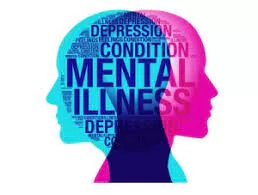In a recent study conducted by the University of Turku, Finland, startling findings reveal that less than one percent of teenagers in middle-income countries seek professional help for mental health issues, despite a significant prevalence of such problems among adolescents.
The research, published in the European Child and Adolescent Psychiatry journal, surveyed over 13,000 teenagers aged 13-15 across eight Asian and European countries between 2011 and 2017. The study focused on nations like India, Vietnam, and China, where researchers discovered that between 0.6-0.9% of girls and 0.9-1.2% of boys sought formal mental health assistance.
Notably, the study highlighted that 28-50% of teenagers in these middle-income countries reported facing high levels of mental health issues, underscoring a considerable gap between the prevalence of issues and professional help-seeking behavior.
Contrasting these figures, high-income countries such as Greece, Israel, Japan, Norway, and Finland showed higher rates of seeking professional help, ranging from 6-25% among adolescents. This disparity suggests better access to mental health services and potentially reduced stigma surrounding mental health concerns in wealthier nations.
Researchers also found that informal sources of support, such as friends, teachers, and family members, were widely relied upon by adolescents across various countries, especially in lower-income nations where formal mental health services may be less accessible or stigmatized.
Lead author Yuko Mori, a doctoral researcher at the University of Turku, emphasized the cultural and structural factors influencing where adolescents seek help for mental health issues. Mori noted, “Adolescents may get help from informal sources due to the availability of services, cultural background, and stigma associated with mental illness.”
Andre Sourander, professor at the University of Turku and leader of the Eurasian Child Mental Health Study, stressed the global implications of these findings. “Widely used informal sources of help in lower-income countries highlight a critical need for mental health awareness and literacy programs,” Sourander stated, advocating for cross-cultural studies to address the significant knowledge gap in adolescent mental health research.
The study underscores the urgent need for targeted interventions and policy initiatives to improve access to mental health services for adolescents globally, bridging the gap between mental health needs and the utilization of professional support.











